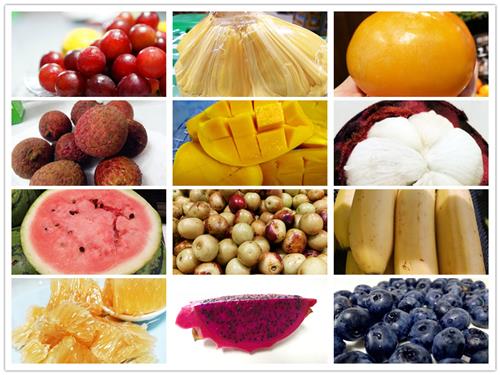Persimmon eats more easily
Persimmons and persimmons are seasonal foods during the Mid-Autumn Festival, but eating too much can cause injury. Recently, a specialist in Hong Kong said that once a female patient had eaten nearly four persimmon cakes once a week, and after the first week there appeared belly bloating and continuous vomiting that was pregnant for nearly eight months. After the inspection, it was confirmed that the persimmon skin was produced. Gastrointestinal stones cause acute intestinal plugs, also known as "persimmon stone disease," requiring laparotomy. Now is the time when the persimmon goes on the market. People who love to eat persimmons should not eat more.

Do you know that eating persimmons can lead to stone disease?
Autumn is the season when the persimmon is ripe. In the streets of Zhengzhou, you can often see some selling fruits and pushing the full-car golden persimmon to sell along the street. The price is not expensive, a few dollars can buy a big pocket, sweet and delicious persimmons tempt people's stomach.
Persimmon is not only delicious but also rich in cellulose, calcium, vitamin C, carotene, sugar, protein and iron, iodine and other trace elements, to supplement the body needs. Persimmon is sweet and astringent, slightly cold and non-toxic. It can clear away heat and dryness, dissolve phlegm and cough, treat cough, fever, thirst, vomiting blood, and aphthous diseases. Li Shizhen said in the "Compendium of Materia Medica": "Persimmon is the fruit of the blood of the spleen. It is sweet and flat, and it is astringent and able to be harvested. Therefore, it has the effect of strengthening spleen, astringent intestines, treating cough, and stopping bleeding."
Persimmons are delicious but not for everyone. Recently, Ms. Zhou, who loves to eat persimmons, called and asked: “I’ve heard that eating persimmons will have stomach stones. Is it true? I like to eat persimmons, and sometimes I eat more, and there will be some uncomfortable symptoms in the stomach. Is not a stomach stone?†“A large number of persimmons can be used to form persimmon stone disease, but it is not common,†said Ma Yingjie, chief physician of Gastroenterology at the Fifth People’s Hospital of Zhengzhou City. “No matter what you eat, you should not overdo it. It will increase the burden on the stomach."
Experts fall high in persimmon stone disease in autumn
"People who have high persimmon yields and those who particularly love to eat persimmons may have persimmon stone disease. Such patients have been seen clinically," said Huang Shuliang, deputy chief physician of digestive medicine at the Third People's Hospital of Zhengzhou.
Huang Shuliang introduced that persimmon stone is the most common type of stomach stones. He received such patients last fall. Many people have caused persimmon stones because of fasting or eating too many persimmons. Generally in the season when the persimmon is going down, it is the high season of "persimmon stone disease." "The persimmon contains tannic acid and pectin, and coagulation occurs after encounter with stomach acid, epithelium, mucus, and food debris that are detached from the stomach, especially when cellulose is glued together to form persimmon stone," said Huang Shuliang.
Gastroliths are very small at the beginning. Once a “core†is formed and cannot be discharged from the stomach, the gastroliths may roll like snowballs and cause erosion, ulceration, and even bleeding of the gastric mucosa. After the illness, there are often severe abdominal pain, nausea, vomiting, anorexia and other symptoms.
Remind the elderly to eat less persimmon
Huang Shuliang said that from a clinical point of view, older people, digestive dysfunction, and more food easily get persimmon stone disease. Do not eat more persimmons on an empty stomach.
Some people think that eating persimmons with persimmon skin eats more flavor. In fact, this method of eating is not scientific. Because most of the tannic acid in the persimmon is concentrated in the skin, when the persimmon is astringent, it is impossible to remove all the tannic acid. If the skin is eaten together with the skin, it is easier to form the stomach stones, especially when the astringent process is not perfect. The skin contains more tannic acid.
In addition, persimmons should not be eaten together with foods containing high protein such as crabs, fish, and shrimp. In Chinese medicine, crabs and persimmons are cold foods and cannot be eaten together. From a modern medical point of view, crabs, fish, and shrimps with high protein are easily congealed into lumps due to tannic acid.
Vats Thoracoscopic Instruments,Thoracoscopic Dissector,Thoracoscopiknot Pushing Stick,Simple Joints Thoracoscopic Instruments
ZHEJIANG SHENDASIAO MEDICAL INSTRUMENT CO.,LTD. , https://www.sdsmedtools.com